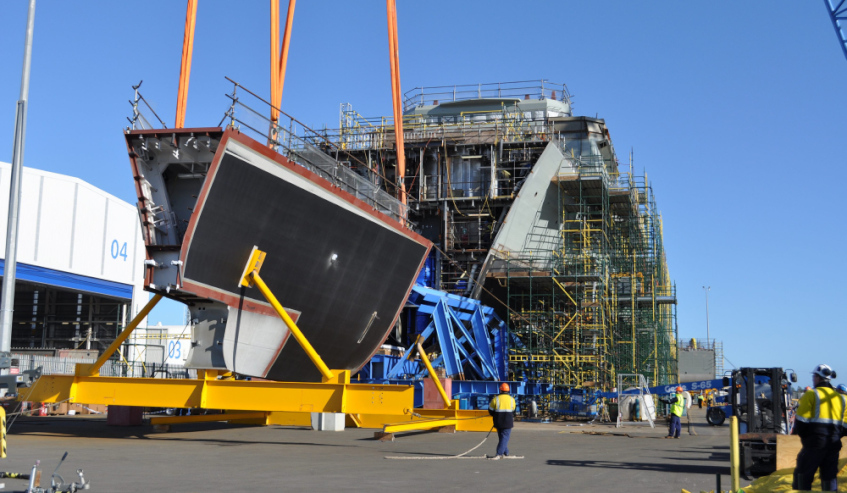The Australian naval shipbuilding industry’s ‘valley of death’ has been at the forefront of many political debates over the last few years, and Labor defence spokesman Richard Marles fears without a strong export industry, Australia could find itself in the same position again.
The member for Corio stressed that developing a sustainable and innovative defence export industry will be crucial if Australia is to avoid another crippling valley of death within the defence industry, one that is being experienced at present.
More than 800 jobs were lost from ASC between November 2014 and January 2016 and 16 employees and 41 contractors on ASC'S Air Warfare Destroyer (AWD) program lost their jobs in April this year. It now currently employs around 1100 personnel.
"We are dealing with the valley of death, really, in relation to shipbuilding right now," Marles told Defence Connect.
"Between the completion of the Hobart Class Air Warfare Destroyer, and whenever building ramps up for the OPVs [Offshore Patrol Vessels] and the Future Frigates going forward. That sort of valley of death is going to be a recurring feature unless we get our companies engaged in doing shipbuilding for other parts of the world. It needs to be export focused."
The Victorian MP said his and the Labor Party's thinking is not unsupported, with key companies in the industry coming forward asking how ambitions for a competitive export industry can be achieved.
"You definitely get a sense from companies in this space, in Australia, that we need to have that [export] focus," Marles said.
"It's then a question of, really, seeing this as a national mission."
Minister for Defence Industry Christopher Pyne unveiled plans for a Defence Export Strategy in March this year, citing the need to reverse Australia's current defence import and export figures.
"Currently we rank fifth in the world for defence imports, but 20th in the world for exports," said Minister Pyne in March.
And this message does not seem to have been lost on the major companies hoping to secure large contracts.
Dirk Malgowski, managing director (defence) of OPV tenderer Lürssen, told Defence Connect the company was well placed to deliver positive results for the Australian defence export industry if chosen for the $3 billion OPV contract.
"What you have to ensure over the time is that you have the ability to export," Malgowski said.
"Exporting means you need to compete on a global scale and, therefore, you have to add competitive cost structures. We believe that we are building these up.
"We are bringing, let's say, the market access to the table that we have built up in the last 60 years."
Similarly, Damen, which is also tendering for the $3 billion SEA 1800 OPV program, is confident it can assist the government with its plans for an enhanced defence export strategy, according to Damen's area director Asia-Pacific Roland Briene.
"We look forward to working with the Commonwealth to maximise opportunities for Australian industry and providing opportunities for local industry to be involved in our global supply chain supporting more than 70 shipyards around the world," Briene said.


